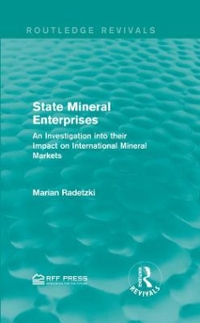Question
1. One of the pharmaceutical firms is seeking to open up new international markets by partnering with various local distributors. The different distributors within a
1. One of the pharmaceutical firms is seeking to open up new international markets by partnering with various local distributors. The different distributors within a country are stronger with different market segments (hospitals, retail pharmacies, etc.) but also have substantial overlap. In Egypt, you calculate that the annual value created by one distributor is $90 million per year, but would be $120 million if two distributors carried your product line.
Assuming a nonstrategic view of bargaining, you would expect to capture $___________million of this deal. (Hint: The two distributors are independent of each other; therefore, you conduct separate negotiations with each.)
Argentina also has two distributors that add value equivalent to the value added by the two distributors in Egypt, but both are run by the government.
Assuming a nonstrategic view of bargaining, we would expect to capture $ ________ million of this deal.
In Argentina, if we do not reach an agreement with the government distributors, you can set up a less efficient Internet-based distribution system that would generate $30 million in value to us.
Assuming a nonstrategic view of bargaining, you would expect to capture $________ million of this deal.
2. Pharmaceutical Benefits Managers (PBMs) are intermediaries between upstream drug manufacturers and downstream insurance companies. They design formularies (lists of drugs that insurance will cover) and negotiate prices with drug companies. PBMs want a wider variety of drugs available to their insured populations, but at low prices. Suppose that a PBM is negotiating with the makers of two nondrowsy allergy drugs, Claritin and Allegra, for inclusion on the formulary. The "value" or "surplus" created by including one non-drowsy allergy drug on the formulary is $228 million, but the value of adding a second drug is only $68 million. Assume the PBM bargains by telling each drug company that it's going to reach an agreement with the other drug company.
Under the non-strategic view of bargaining, the PBM would earn a surplus of $ _________ million, while each drug company would earn a surplus of $___________ million.
Now suppose the two drug companies merge. What is the likely postmerger bargaining outcome?
Under the nonstrategic view of bargaining, the PBM would earn a surplus of $_______ million, while the merged drug company would earn a surplus of $_____________________ million.
3. We 've entered into a contract to purchase a new house, and the closing is scheduled for next week. It's typical for some last-minute bargaining to occur at the closing table, where sellers often try to tack on extra fees. You have three options for the closing:
| 1. | Attend yourself |
| 2. | Send an attorney authorized to close only per the previously negotiated terms |
| 3. | Presign all the closing documents per the current terms and not attend the closing |
Presigning all closing documents and not attending is a (less or more) attractive strategy, from a bargaining perspective, than sending an attorney. (Hint: Which strategy signals more of a willingness to bargain?)
Step by Step Solution
There are 3 Steps involved in it
Step: 1

Get Instant Access to Expert-Tailored Solutions
See step-by-step solutions with expert insights and AI powered tools for academic success
Step: 2

Step: 3

Ace Your Homework with AI
Get the answers you need in no time with our AI-driven, step-by-step assistance
Get Started


